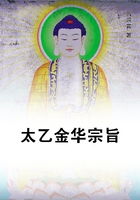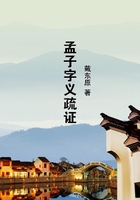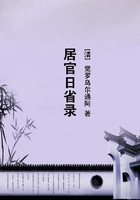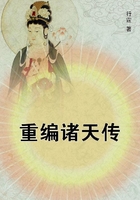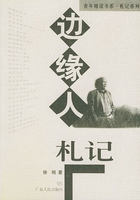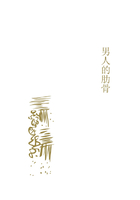THE MIRACLE OF PADRE JUNIPERO
This is the tale that the Chronicle Tells of the wonderful miracle Wrought by the pious Padre Serro, The very reverend Junipero.
The heathen stood on his ancient mound, Looking over the desert bound Into the distant, hazy South, Over the dusty and broad champaign, Where, with many a gaping mouth And fissure, cracked by the fervid drouth, For seven months had the wasted plain Known no moisture of dew or rain.
The wells were empty and choked with sand;
The rivers had perished from the land;
Only the sea-fogs to and fro Slipped like ghosts of the streams below.
Deep in its bed lay the river's bones, Bleaching in pebbles and milk-white stones, And tracked o'er the desert faint and far, Its ribs shone bright on each sandy bar.
Thus they stood as the sun went down Over the foot-hills bare and brown;
Thus they looked to the South, wherefrom The pale-face medicine-man should come, Not in anger or in strife, But to bring--so ran the tale--The welcome springs of eternal life, The living waters that should not fail.
Said one, "He will come like Manitou, Unseen, unheard, in the falling dew."
Said another, "He will come full soon Out of the round-faced watery moon."
And another said, "He is here!" and lo, Faltering, staggering, feeble and slow, Out from the desert's blinding heat The Padre dropped at the heathen's feet.
They stood and gazed for a little space Down on his pallid and careworn face, And a smile of scorn went round the band As they touched alternate with foot and hand This mortal waif, that the outer space Of dim mysterious sky and sand Flung with so little of Christian grace Down on their barren, sterile strand.
Said one to him: "It seems thy God Is a very pitiful kind of God:
He could not shield thine aching eyes From the blowing desert sands that rise, Nor turn aside from thy old gray head The glittering blade that is brandished By the sun He set in the heavens high;
He could not moisten thy lips when dry;
The desert fire is in thy brain;
Thy limbs are racked with the fever-pain.
If this be the grace He showeth thee Who art His servant, what may we, Strange to His ways and His commands, Seek at His unforgiving hands?"
"Drink but this cup," said the Padre, straight, "And thou shalt know whose mercy bore These aching limbs to your heathen door, And purged my soul of its gross estate.
Drink in His name, and thou shalt see The hidden depths of this mystery.
Drink!" and he held the cup. One blow From the heathen dashed to the ground below The sacred cup that the Padre bore, And the thirsty soil drank the precious store Of sacramental and holy wine, That emblem and consecrated sign And blessed symbol of blood divine.
Then, says the legend (and they who doubt The same as heretics be accurst), From the dry and feverish soil leaped out A living fountain; a well-spring burst Over the dusty and broad champaign, Over the sandy and sterile plain, Till the granite ribs and the milk-white stones That lay in the valley--the scattered bones--Moved in the river and lived again!
Such was the wonderful miracle Wrought by the cup of wine that fell From the hands of the pious Padre Serro, The very reverend Junipero.
THE WONDERFUL SPRING OF SAN JOAQUIN
Of all the fountains that poets sing,--Crystal, thermal, or mineral spring, Ponce de Leon's Fount of Youth, Wells with bottoms of doubtful truth,--In short, of all the springs of Time That ever were flowing in fact or rhyme, That ever were tasted, felt, or seen, There were none like the Spring of San Joaquin.
Anno Domini eighteen-seven, Father Dominguez (now in heaven,--Obiit eighteen twenty-seven)
Found the spring, and found it, too, By his mule's miraculous cast of a shoe;
For his beast--a descendant of Balaam's ass--Stopped on the instant, and would not pass.
The Padre thought the omen good, And bent his lips to the trickling flood;
Then--as the Chronicles declare, On the honest faith of a true believer--His cheeks, though wasted, lank, and bare, Filled like a withered russet pear In the vacuum of a glass receiver, And the snows that seventy winters bring Melted away in that magic spring.
Such, at least, was the wondrous news The Padre brought into Santa Cruz.
The Church, of course, had its own views Of who were worthiest to use The magic spring; but the prior claim Fell to the aged, sick, and lame.
Far and wide the people came:
Some from the healthful Aptos Creek Hastened to bring their helpless sick;
Even the fishers of rude Soquel Suddenly found they were far from well;
The brawny dwellers of San Lorenzo Said, in fact, they had never been so;
And all were ailing,--strange to say,--From Pescadero to Monterey.
Over the mountain they poured in, With leathern bottles and bags of skin;
Through the canyons a motley throng Trotted, hobbled, and limped along.
The Fathers gazed at the moving scene With pious joy and with souls serene;
And then--a result perhaps foreseen--They laid out the Mission of San Joaquin.
Not in the eyes of faith alone The good effects of the water shone;
But skins grew rosy, eyes waxed clear, Of rough vaquero and muleteer;
Angular forms were rounded out, Limbs grew supple and waists grew stout;
And as for the girls,--for miles about They had no equal! To this day, From Pescadero to Monterey, You'll still find eyes in which are seen The liquid graces of San Joaquin.
There is a limit to human bliss, And the Mission of San Joaquin had this;
None went abroad to roam or stay But they fell sick in the queerest way,--A singular maladie du pays, With gastric symptoms: so they spent Their days in a sensuous content, Caring little for things unseen Beyond their bowers of living green, Beyond the mountains that lay between The world and the Mission of San Joaquin.
Winter passed, and the summer came The trunks of madrono, all aflame, Here and there through the underwood Like pillars of fire starkly stood.
All of the breezy solitude Was filled with the spicing of pine and bay And resinous odors mixed and blended;
And dim and ghostlike, far away, The smoke of the burning woods ascended.

